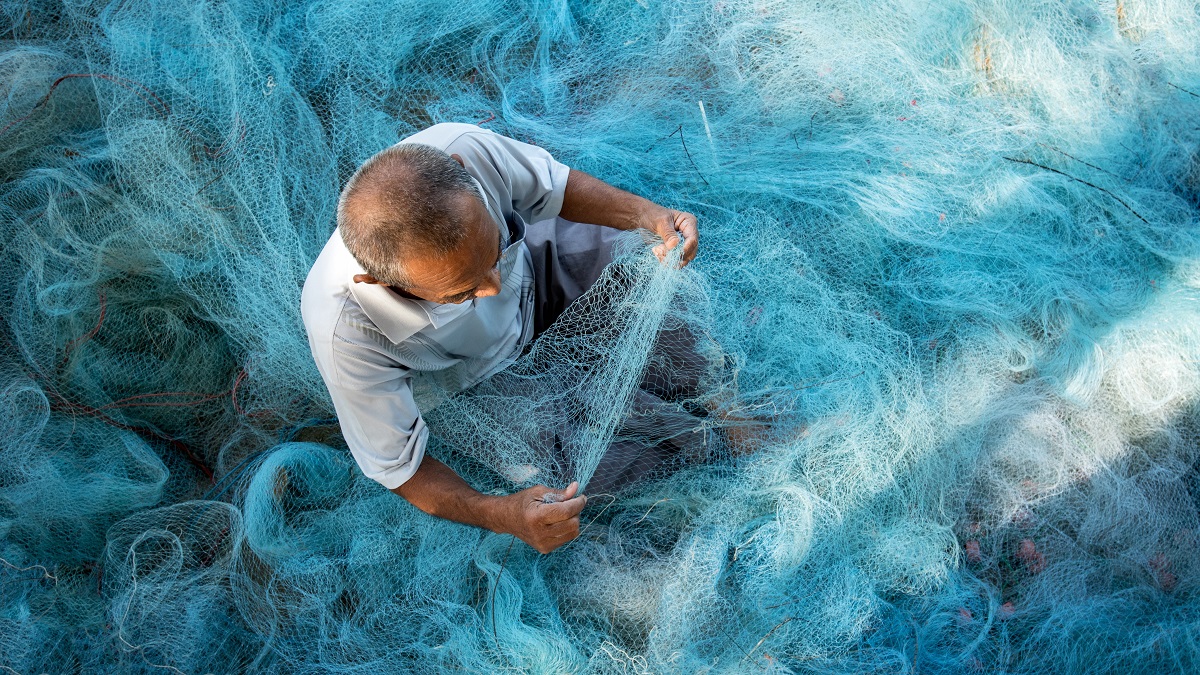The ocean is a source of opportunities to sustain livelihoods, trade and mitigate climate change. But the health of the ocean is deteriotrating and the economies it supports are under threat.
© Geet Theerawat/Shutterstock.
Protecting our ocean and boosting its economic benefits demands a global trade, investment and innovation "Blue Deal" to create a sustainable and resilient ocean economy that benefits all.
An UNCTAD-led coalition will chart the course for this vital initiative at the fourth edition of its Oceans Forum, set for 6 to 8 April in Geneva and online.
“This is the perfect time to set a new direction by investing in sustainable ocean-based economies,” said UNCTAD Secretary-General Rebeca Grynspan.
“The ocean’s economic, social and environmental value can help us recover better from the pandemic and cushion us against future crises,” she said. “But we have to find the right balance between benefitting from the ocean and protecting its resources.”
The coalition organizing the forum includes the Food and Agriculture Organization, the UN Environment Programme, the Commonwealth Secretariat, the Organisation of African, Caribbean and Pacific States, the Development Bank of Latin America and the International Ocean Institute.
Over 300 participants and experts from about 50 countries and 60 organizations will focus on sustainable fisheries, the ocean economy and safeguarding the seas and livelihoods.
Ahead of the 2022 UN Ocean Conference in Lisbon from 27 June to 1 July 2022, the Oceans Forum will discuss how trade can support countries in conservation and sustainable use of the ocean, seas and marine resources for sustainable development.
The ocean is a source of opportunity to sustain livelihoods, trade and mitigate climate change
It supports the livelihoods of more than 3 billion people, most of them in developing countries. The export value of ocean-based goods and services is estimated at $2.5 trillion.
More than 80% of merchandise trade by volume is transported by sea, underscoring the importance of strengthening supply chains that have been disrupted by the COVID-19 pandemic and the war in Ukraine.
But the health of the ocean is deteriorating and the economies it supports are under threat as human activities erode marine ecosystems. Globally, 34% of fish stocks have fallen to levels that are biologically unsustainable.
Blue Deal
The Oceans Forum will examine how a “Blue Deal” to build a resilient ocean economy will boost trade, livelihoods and food security, while improving the health of the ocean in the face of increased plastics pollution and carbon emissions.
The ocean economy is expected to double in size by 2030. However, more investment is needed to drive new sectors – including seaweed farming for food, cosmetics and biofuels – that could benefit many island and coastal countries.
From 2013 to 2018, only 1.6% of the total Official Development Assistance – some $2.9 billion per year – was directed to the ocean economy. Just $1.5 billion per year was focused on building a sustainable ocean economy.
Farming 2% of the ocean could provide enough protein to feed a world population of 12 billion. Plastic substitutes such as aluminum, natural fibres, paper and seaweed biomass materials also hold great promise.
Gaps in ocean governance need to be filled, including efforts to regulate fisheries subsidies, which averaged $10 billion over the last decade among industrialized countries and could be as high as $35 billion worldwide. Of that, $20 billion directly contributes to overfishing.
After 20 years of negotiations on fisheries subsidies, countries are at an advanced stage, but more efforts are needed to finalize and implement a global agreement.
Without a global accord, Sustainable Development Goal 14 and its promise of a resilient and beneficial ocean economy will not be achieved.
UNCTAD’s work on the ocean economy
UNCTAD supports developing countries to improve their trade policies to ensure the sustainable use of the ocean, seas and coasts for economic growth and improve livelihoods and jobs, while preserving the health of the ocean ecosystem.

